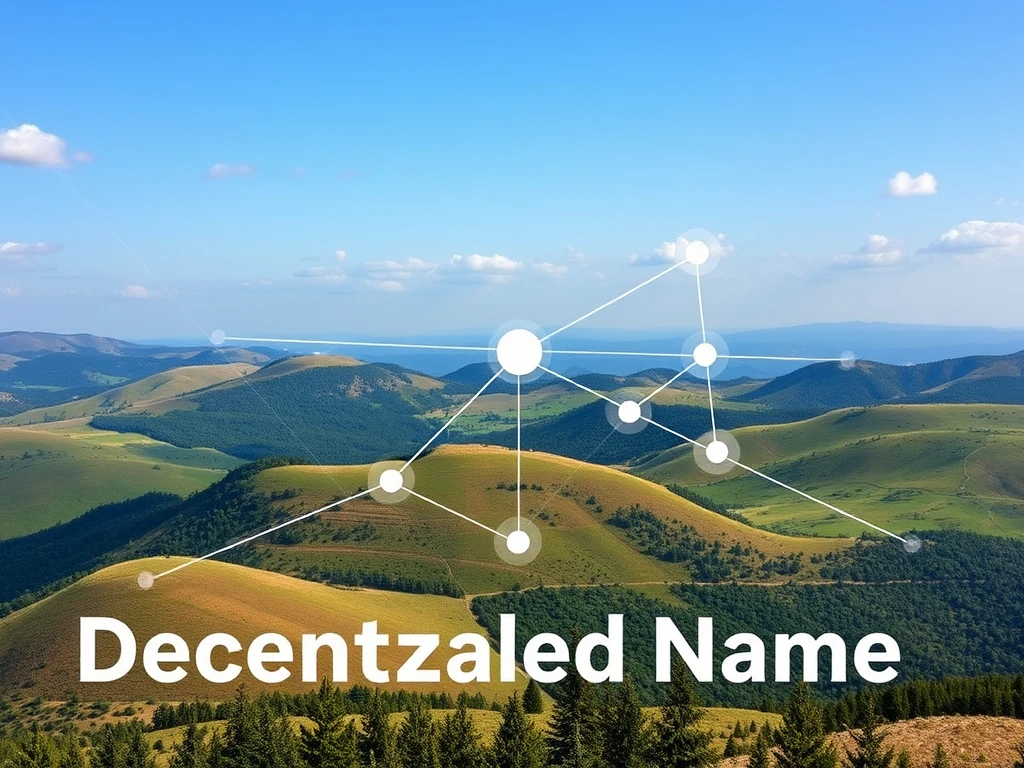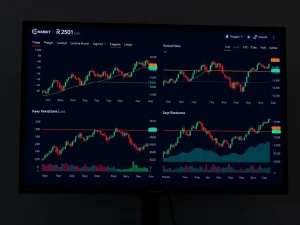Crucial: Tim Berners-Lee Urges More DNS Decentralization

The architecture of the internet is a topic rarely discussed outside technical circles, but a recent comment from its very inventor has brought it into the spotlight. At ETH Prague, Sir Tim Berners-Lee, the mind behind the World Wide Web and HTML, expressed a significant reflection: if he were to design the Domain Name System (DNS) today, he would build it with greater DNS Decentralization in mind. This statement resonates strongly with the core principles driving the crypto and Web3 space.
Why Tim Berners-Lee Believes DNS Decentralization Matters
Speaking alongside Ethereum co-founder Vitalik Buterin, Berners-Lee looked back at the foundational decisions made during the early days of the internet. While Paul Mockapetris developed DNS in 1983 as a more scalable replacement for the original hosts.txt file, Berners-Lee acknowledges that different architectural choices could have been made, particularly regarding how URLs connect to addresses. His sentiment is clear: the current system leans too heavily towards centralization.
Understanding Centralized DNS Issues
The existing DNS structure, despite its distributed nature compared to its predecessor, suffers from significant centralization points, particularly at its highest levels. Key issues include:
- Root Zone Control: The root zone, which governs top-level domains (.com, .org, etc.), is managed by ICANN, a US-based nonprofit. This creates a single point of control.
- Authoritative Server Concentration: A small number of organizations operate the most critical servers, further centralizing power.
- Censorship Risk: Centralized control allows governments or authorities to easily seize or block domain names, limiting free expression and access.
- Outage Vulnerability: Concentration increases the risk of widespread outages if central services are disrupted.
- Privacy Concerns: Centralized DNS queries can be monitored and logged by internet service providers and other intermediaries, compromising user privacy.
This concentration of power and control over internet naming is precisely what prompts figures like Tim Berners-Lee to advocate for a more decentralized approach.
Crypto DNS Alternatives: Building a Decentralized Internet
The crypto community has been actively developing solutions to address the centralization inherent in traditional DNS. These projects aim to create a more robust, censorship-resistant, and user-controlled naming layer for the internet, moving towards a truly Decentralized Internet. Several notable examples exist:
- Ethereum Name Service (ENS): Perhaps the most well-known, ENS maps human-readable names (like .eth addresses) to cryptocurrency wallet addresses, content hashes on systems like IPFS, or other data. It operates on Ethereum smart contracts, aiming for user ownership and resistance to censorship. Recent partnerships, such as with PayPal and Venmo via ENS Labs, signal growing interest in mainstream adoption.
- Unstoppable Domains: This platform mints domain names as NFTs on Ethereum and Polygon, providing users with full ownership and control over their domain assets.
- Handshake (HNS): A permissionless naming protocol designed to be compatible with traditional DNS while operating on its own decentralized blockchain.
- Namecoin (NMC): An early Bitcoin fork specifically created to handle .bit domains and store DNS records directly on a blockchain for censorship resistance.
- InterPlanetary Name System (IPNS): Part of the IPFS ecosystem, IPNS allows for mutable names that point to content addresses (hashes), shifting focus from server location to content identity.
These Crypto DNS projects represent practical implementations of the decentralization principles Berners-Lee now emphasizes, offering concrete paths away from centralized naming authorities.
Benefits of Decentralized Naming
Embracing decentralized naming systems offers several advantages:
- Censorship Resistance: Domains owned on a blockchain are difficult for any single entity to seize or block.
- User Ownership: Users have direct control over their domain assets, similar to owning cryptocurrency.
- Enhanced Privacy: Queries can potentially be routed and resolved in ways that reduce reliance on centralized intermediaries.
- Increased Resilience: A truly distributed system is less susceptible to single points of failure or coordinated attacks.
The rise of projects like ENS highlights the growing demand for these benefits within the Web3 ecosystem and beyond.
Conclusion
Tim Berners-Lee’s candid reflection on the internet’s architecture underscores a fundamental challenge: balancing usability and scalability with decentralization and control. His wish for a more decentralized DNS system validates the efforts of the crypto community building blockchain-based naming solutions. As the internet continues to evolve, the push towards decentralized alternatives for core infrastructure like DNS will likely gain momentum, offering a future where naming is more resistant to censorship, more private, and truly owned by its users.









